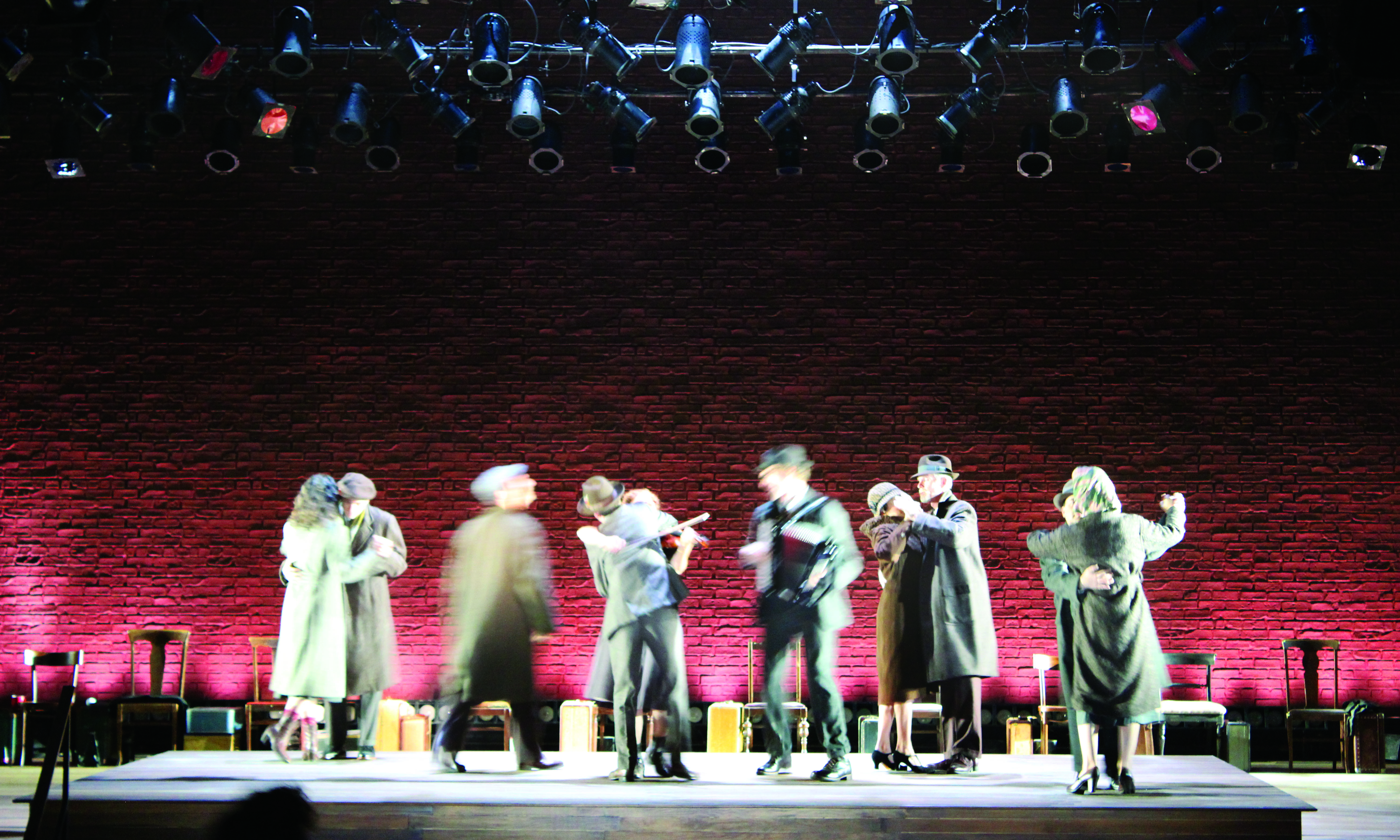
For its first show of the 2015–16 season, the Yale Repertory Theatre will present a clash of religion and modernity as it stages the world premiere of “Indecent.”
Written by the Rep’s playwright-in-residence Paula Vogel and created with Rebecca Taichman DRA ’00, the play details the events surrounding the 1923 debut of Sholem Asch’s “God of Vengeance,” described by the Yale Rep as a “seminal work of Jewish culture.” The production aims to provide insight into the controversy surrounding the original play’s themes and characters, which are often labeled anti-Semitic. After “God of Vengeance” premiered in the U.S. in 1923, the entire Broadway cast was arrested and successfully prosecuted on charges of obscenity, as the play featured prostitution and a same-sex relationship. According to Vogel, “God of Vengeance” remains relevant because it provides insight into the way women and minority communities are treated.
“It’s very interesting, the alignment between 1923 and 2015,” she said. “Both times [are] perilously nativist and anti-immigrant in a way I feel endangers the value of America, so it’s a good time to look at this.”
Vogel noted that the creation of “Indecent” was a five-year process, involving frequent back and forth between herself and Taichman. Having written her School of Drama thesis on “God of Vengeance” and its obscenity trial, Taichman came into the planning with intimate knowledge of the case. For her part, Vogel read trial transcripts, books on prostitution in Russia and the Pale, as well as literature on the Yiddish language.
Characterized by Vogel as a “Yiddish-English conversation,” “Indecent” features conversational and historic use of Yiddish language. Joel Berkowitz, an expert on Yiddish theater at the University of Wisconsin-Milwaukee, provided Yiddish translation for the production.
The play also includes Yiddish music composed by Lisa Gutkin and music director Aaron Halva, as well as original Klezmer music, a musical tradition of Eastern European Jews characterized by attempts to replicate human sounds such as laughing or crying.
Halva and Vogel said they found Gutkin’s deep knowledge of Klezmer and Jewish music remarkably useful during the creative process.
Halva said the music is a mix of compositional needs and arrangements of popular songs of the era, adding that the musical script is constantly changing and may not be set even on opening night.
“[The music] truly feels like another character in this play. It can be the breath under a blink in time or the full raucous joy of a group number,” he said. “The natural acoustic sound of the wooden reeds of the clarinet and accordion and the strings of the bass and violin without effects or manipulation really can help you travel in your heart and mind to Warsaw, to Germany, to the Bowery.”
Vogel said she had not previously experienced this level of collaboration and convergence of diverse passions, adding that “Indecent” marks the first time she has ever co-created.
Despite allegations of anti-Semitism regarding “God of Vengeance,” members of Yale’s Jewish community interviewed were enthusiastic at the prospect of seeing the show.
Yale Hillel Outreach Coordinator Jordana Gardenswartz ’18 said she views the play as a unique way of seeing Jewish culture manifested on campus.
Juli Goodman, Director of Jewish Student Life at the Slifka Center, said a tentative plan exists for the Center to organize a group trip to the play. She added that she does not anticipate the play will be a problem in Yale’s Jewish community. To expect that, she said, would “undersell most Yalies.
“Indecent” will open Oct. 8 at the University Theatre.







